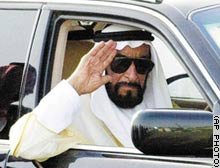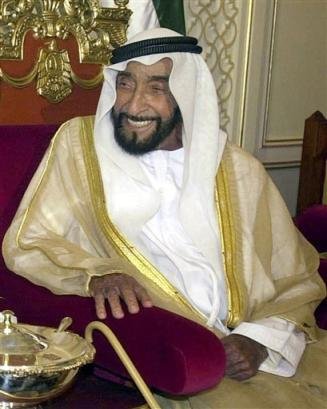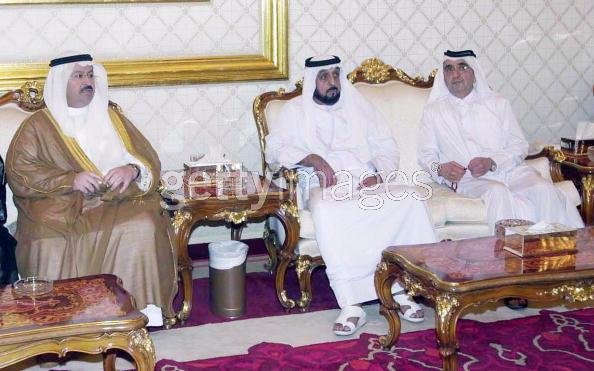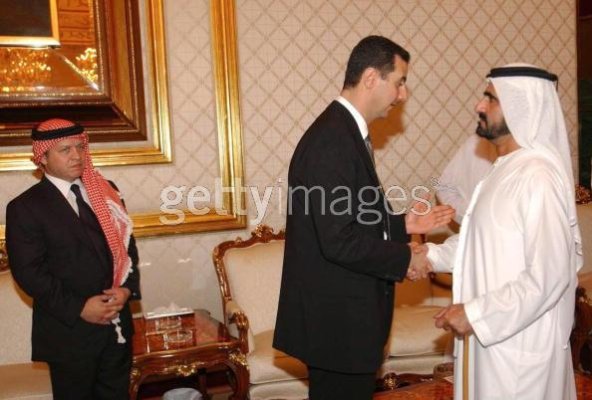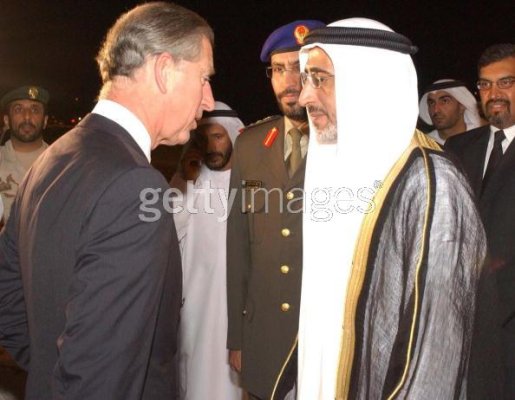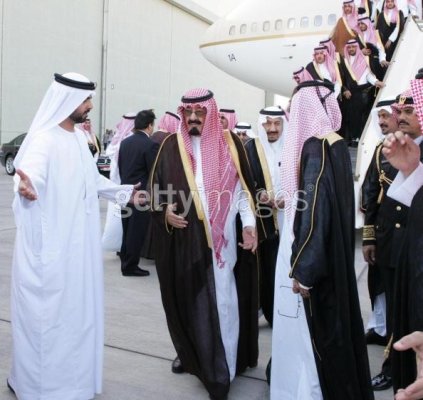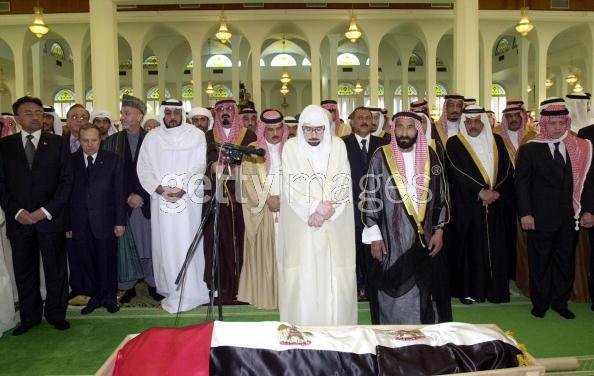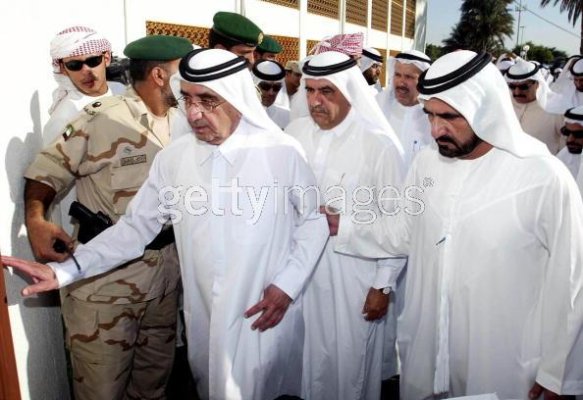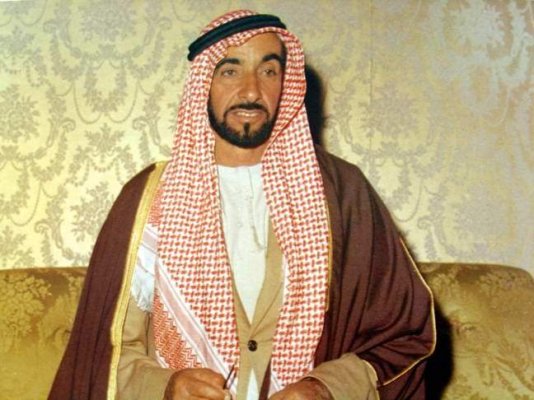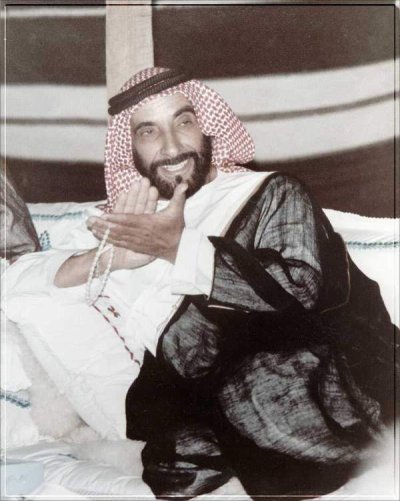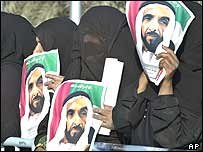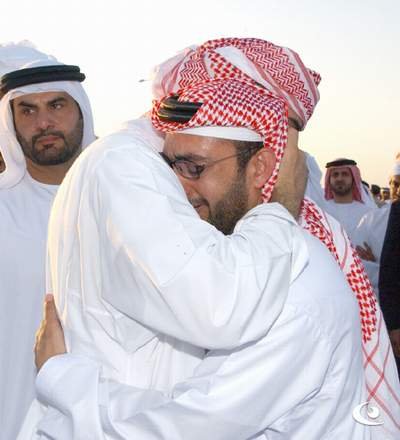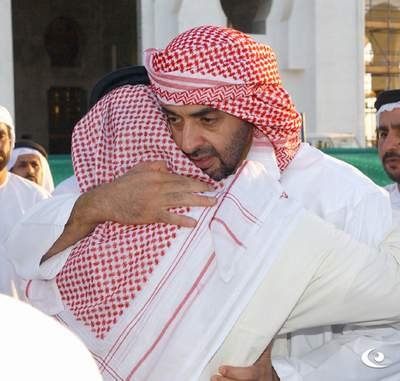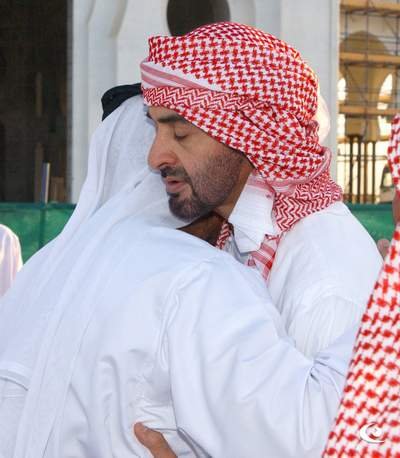UAE President Sheikh Zayed bin Sultan Al Nahyan Dies at 86
Dar Al-Hayat 2004/11/2
The president of OPEC member the United Arab Emirates, Sheikh Zayed bin Sultan Al Nahyan, died on Tuesday, Abu Dhabi state television said. "The royal court announces to Arab and Islamic countries and the rest of the world the death of the leader of the nation Sheikh Zayed ... on Tuesday evening," said an announcement read out on Abu Dhabi television.
Sheikh Zayed, who has been absolute ruler of the United Arab Emirates for more than 30 years, had been ailing for several years and did not attend Arab summits. He had a kidney transplant in August 2000. His eldest son, Sheik Khalifa bin Zayed Al Nahyan, has been heir apparent since his father named him in 1969 crown prince of Abu Dhabi, the capital and richest of the seven emirates.
Abu Dhabi TV interrupted regular broadcasting to break the news of Sheikh Zayed's death, but no cause of death was provided. The announcement was followed by an Islamic cleric appearing on TV reading verses from the Koran.
Sheikh Zayed, ruler of Abu Dhabi since 1966, was the founding leader of the United Arab Emirates, which he had ruled since the seven emirates forged a union and took independence from Britain in 1971. He has watched over the Emirates' development from a cluster of desert provinces ruled by Arab tribes to a world-leading financial and banking center.
Under the UAE constitution, Vice-President and Prime Minister Sheikh Maktoum bin Rashid Al Maktoum, ruler of Dubai, will act as president until the federal council which groups rulers of the seven emirates meets within 30 days to elect a new president.
While the rulers of the seven emirates must choose the next president, they are expected to settle on Sheikh Khalifa. It was not immediately clear when a decision would be made on Sheikh Zayed's successor.
Biography
Zayed was born in 1918 and named after his grandfather, Sheikh Zayed bin Khalifa Al Nahyan, who has the longest reign in the emirate's history, ruling Abu Dhabi from 1855 to 1909. His grandfather is also known as "Zayid The Great" and "Zayed the First", and had played a large role in forging unity between the tribes of Oman and leading the Bani Yas tribe.
Zayed's father, Sheikh Sultan bin Zayed Al Nahyan, ruled Abu Dhabi between 1922 and 1926. Then Zayed's uncle, Sheikh Saqr bin Zayed Al Nayhan, reigned followed by Zayed's eldest brother, Sheikh Shakhbut in 1928. After his father died in 1927, Zayed moved to the oasis of Al Ain, approximately 160 kilometers east of the island of Abu Dhabi, where he spent the rest of his youth. There he underwent religious education, and learned the Koran and was deeply moved by the biography of Prophet Mohamad.
At that time, the seven emirates, known then as the seven Trucial States, had been under British influence since 1820. Abu Dhabi was poor and undeveloped and its economy was based upon fishing and pearl diving along the coast. The economy suffered when the market for Gulf pearls collapsed in the 1930s after Japanese scientists invented the cultured pearl. At this point, the first oil company teams came to carry out geological surveys, and Zayed was appointed to guide them around the desert.
Sheikh Shakhbut assigned Sheikh Zayed to govern Al Ain in 1946 and later in 1953. They both traveled to Europe to appear at a legal hearing on an oil dispute. They also traveled to the United States, Switzerland, Lebanon, Iraq, Egypt, Syria, India, Iran, and Pakistan. On his return, Sheikh Zayed was convinced that it was urgent to develop the area in order to bridge the large gap between it and the rest of the world.
When oil was discovered in Abu Dhabi in 1958, economic matters began to improve. The first commercial field entered production in 1962 from the offshore Umm Shaif field, and then from onshore at Bab. On August 9, 1966, Sheikh Shakhbut gave control of Abu Dhabi to his younger brother.
After assuming rule, Sheikh Zayed introduced a formal government structure, with departments developed to handle specific tasks. Priority was given to build basic housing facilities, schools, health services, and the construction of an airport, a seaport, roads, and a bridge to link Abu Dhabi to the mainland. Financial resources were spent for the planting of trees in Al Ain in order to transform Abu Dhabi into a green city. Funding was also spent for the creation of a zoo in Al Ain in 1967.
When Britain announced in January 1968 that it would withdraw its military presence in the Gulf, Sheikh Zayed was the first statesman to call for a union. Zayed realized that for Abu Dhabi to prosper, it would need to co-operate with its tribal neighbors. So his first step was to meet with the then-ruler of Dubai, Sheikh Rashid bin Saeed Al Maktoum. The two held meetings on the 19th of February 1968 at Samih and discussed border disputes. This followed by the signing of an agreement on the 27th of February 1968, which would form a federation of nine emirates (Abu Dhabi, Ajman, Bahrain, Dubai, Fujairah, Ras al-Khaimah, Sharjah, Qatar and Umm al-Quwain). Unfortunately the had many setbacks as Zayed tried for 3 years to bring things together. Bahrain and Qatar wanted to seek full independence and Ras Al Khaymah also declined to join. On the 2nd of December 1971, a federation of six emirates (Abu Dhabi, Ajman, Dubai, Fujairah, Sharjah, Umm al-Quwain) formed the United Arab Emirates [UAE]. Sheikh Zayed was elected president and Sheikh Rashid was elected vice-president. Shortly afterwards, Ras Al Khaimah decided to join the federation, which officially took place on the 11th of February of 1972.
Sheikh Zayed has been re-elected as president at five-year intervals by the Supreme Council Members, who are ruling members of each of the seven emirates. Sheikh Rashid was re-elected vice-president until he died in 1990, at which time his son, Sheikh Maktoum, took his father's place. Sheikh Zayed continues to utilize the oil revenues of Abu Dhabi to fund projects throughout the UAE. Sheikh Zayed also played a major role in the formation of the Gulf Cooperation Council (GCC), which officially started in Abu Dhabi in 1981.
Now at the age of 86, Sheikh Zayed's health is deteriorating and he continuously travels to the United States for medical check ups. He traveled to the United States in 1996 for a spinal surgery and then again in August 2000 for a kidney transplant, both of which he has recovered successfully. His son, Sheikh Khalifa, who is the crown prince and Deputy Supreme Commander of the UAE Armed Forces, will succeed him. Al Ain is currently being governed by Sheikh Tahnoon bin Mohamad Al Nahyan.
http://english.daralhayat.com/arab_news/11-2004/Article-20041102-fa6dd5ef-c0a8-10ed-003a-92db9e9f2537/story.html


